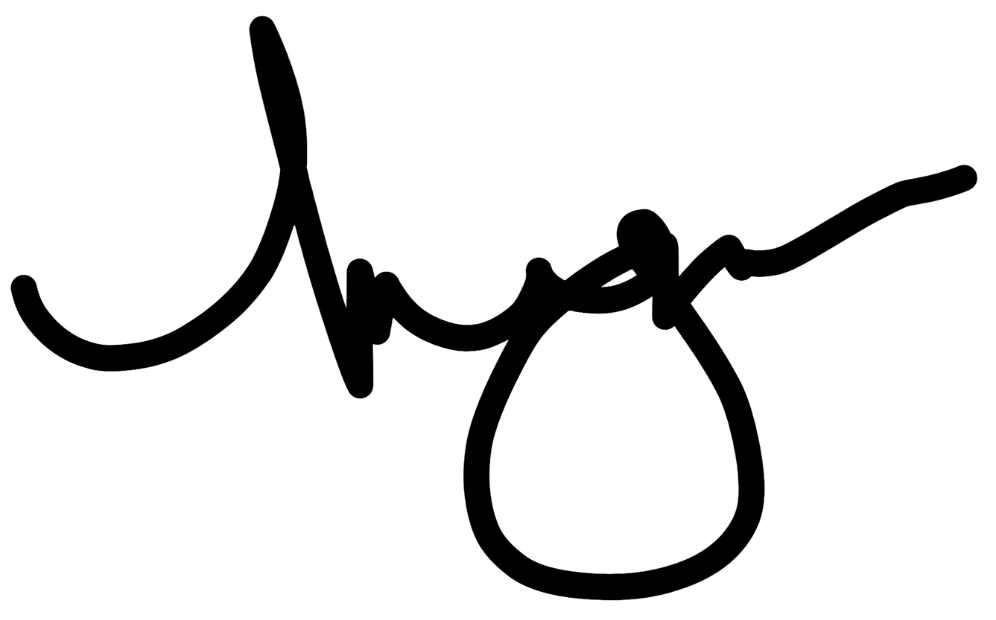Greetings, my dear ghosts and ghouls!!
We approach my absolute favorite season of the year: the most mysterious and kooky, the spookiest, the creepiest, the Nightmare Before Christmas! Because Halloween is my Christmas, and I will walk in its darklight as long I’m able.1
But we’re not here to discuss the happ-happiest season of all. On with the show!
The Economic Rhetoric of Desire
I’ve been thinking a lot recently about economics, a great surprise, seeing as I legit used to have panic attacks at the thought of interacting with numbers at all.2
But, as I continue to think about what personal formation looks like in contemporary Western society, I’m realizing that it’s not enough to look at psycho-emotional aspects of growth. I also need to understand the socio-cultural, political, and economic conditions in which we grow as well, those things that comprise our habitus.
Not to mention, “the economy” looms large in our collective psyche and public discourse right now.3 Everyone feels that the “rent is too damn high,” that the rich grow richer, and the poor grow forgotten. The sense looms over us that the promises of the Western experiment no longer apply. When you see #Capitalism attached to a justifiable critique of our current structures, it sounds like a call to try something different.
And yet, when I see that (or any other) social hashtag, I frequently feel unsettled. It’s not from the acknowledgment of the very real exploitative effects of these systems. And Lord knows we’ve lived with the capitalist experiment long enough to see how it works when pushed to its fullest neoliberal, de-regulated expression.
I’ve finally figured out that my discomfort arises from the sense that such hashtags are used as the whole argument, period, full stop. Saying “Hashtag Fact”4 does little else but shut down the conversation, blaming the system without exploring the roots of the system in the first place.
So, I’d like to explore how human systems come into being, using the lens of economies and markets, and consider what this communicates about our self-understanding.
You may have gathered by now that I hold Christian commitments, which means that I see human nature in certain ways. Since this isn’t a biblical exegesis account, I’ll spare you the details, but here’s the short version:
I understand that humanity was designed to delight in God and reflect his glory by being in relationship with him. We are created to seek out, to desire the abundant good that is God himself. I also understand that this good, beautiful impulse of human desire is corrupted, warped: we pursue anything and everything but God, and find glory in the reflection, not the source. This twisted desire impedes our ability to befriend God and to be in vulnerable relationship with others. Consequently, we make sure that our systems and structures reinforce that corruption and obstruction.
Every single human system, whether political, social, or economic, rests, as Daniel Bell suggests, on a foundation of “philosophical convictions, presuppositions about the nature of reality, about what is real, about what people are, and how they relate to one another.”5 These systems are fundamentally “powered by human desire.” And economic systems especially are “about the labor of human desire and how it makes use” of the world around us, how it produces (often in excess) the goods and services that we need to survive and relate to each other.6
Bell’s book The Economy of Desire explores the role that economic systems play in ordering our convictions and presuppositions, our ultimate desires. He suggests that, rather than asking “does capitalism work?” (which is the question implied by #Capitalism), we should ask “what work does capitalism do?”
Economic systems train us to want these things and not those things, to accept specific relationships between specific people and ignore other options. These systems shape our behaviors to pursue goods and services in such socially-defined and acceptable ways as to reinforce and perpetuate all of the above.
This may seem like a lot of pressure to put on an economy. Yet I’ve come to believe that desire is the organizing principle, the motivating factor, of human life. If, as Foucault and Deleuze suggest, desire is a “restless, productive, and creative” force in the world,7 and if the Christian scriptures accurately describe the whole of human life as one of seeking and desiring, then…
How we understand reality, how we structure the discipline of desire, and how we attend to the formation of our selves—in short, how we come to love and want the things we do…this means every single system that humans establish functions to communicate and propel these assumptions forward.
I am slowly (so very slowly) reading through Christopher Watkin’s Biblical Critical Theory, in which he offers a short discussion of two kinds of desire: consumption and intimacy.
Consumption, Watkin says, obeys the laws of scarcity, merit, and performance; it is motivated by debt. In contrast, intimacy is motivated by thankfulness, and characterized by abundance, bounty, gift, and grace.8 Watkin suggests that consumption and intimacy signal different paradigms of excess, of more-than, which appear differently depending on the paradigm. The gift economy flows from divine generosity and gratuitous abundance. The market economy arises from a surplus of overproduction, overconsumption, and the limitless drive for profit.9 One results in more-than-enough; the other results in never-enough.
If we make choices based on the assumption that reality is a generous gift that we receive and share, we can begin to create virtuous cycles, systems of care for the other and concern for the common good that connect us in community.
If we make choices based on the assumption that reality is comprised of limited resources to meet unlimited wants, we begin to create conglomerates of self-interested individuals constantly competing for scarce goods and scarcer relationships.
There are only ever these two economies: the gift economy and the market economy. And within those economies, we create either immortal horrors or everlasting splendors, as C.S. Lewis once wrote. I’ve begun to realize that this is part of what we miss in using #Capitalism or #Socialism. All human economic systems and structures are exploitative and dehumanizing. We cannot exchange one such system for another and expect any better outcomes.
What we rightly protest, though, when we use #Capitalism is the divorce, the uncoupling (conscious or otherwise) of economic systems from any sense of morality or virtue. And what the gift economy does, among other things, is to give us language to challenge “a market that is untethered from virtue, from the common good,”10 a market that values persons by the same “criteria as commodities—marketability, profitability, and consumability.”11
When we see the depletion, destitution, and destruction of entire regions and ways of living, we protest an economy that has shaped us to think that there exists only one solution: to rationally maximize self-interest, to rip up the roots of our affections and relations, to live and work within the machines and systems of production that actively strive against our divinely-created and oriented desires.
In our current hashtag moment, we find ourselves caught in the riptide of choices established centuries ago. In some respects, we are at the mercy of invisible forces and powers against which we can hardly contend. But in other ways, we have the opportunity to imagine different futures, to illuminate deeper realities than we’ve trained ourselves to see, to communicate new ways of being than we’ve so far formed ourselves to want.
For, as Bell points out, the victory that capitalism claims is “always unstable, tenuous, contested,” because desire is a restless and creative force. “At any time and in any space, alternative and oppositional forms can be at work.”12 And if that’s the case, we have before us always the invitation to set aside ceaseless consumption and to receive abundant intimacy.
Who knew economics could say so much?
The Stages of Rhetoric
I didn’t watch the Harris-Trump debate, but I have caught some commentary and clips in the days since. I thought I’d dust off my communication hat and evaluate what I’ve been seeing since Harris entered the presidential race. To be clear, I am looking at the rhetorical strategies and styles of the candidates, not the substance or merits of their communication.13
But, first a little theory…just a smidge…
Sociologist Erving Goffmann proposed a theory of communication called impression management, which suggests that in any given situation, we perform or put on a presentation. Depending on the circumstances, we have to decide how we position ourselves, what we want to say, and how we want to act. We define those circumstances based on our “frame analysis,” i.e., our framework, which is how we identify and understand the context of the events in which we participate.
Goffman’s theory also includes the idea of front stage performance and back stage construction. The front stage is what others see; the backstage is what only you see. And part of performing effectively on the front stage is also knowing which stage you’re on, that is, which frame you’re using to make sense of things.
Got it? Kewl. On to the candidates!
Ever since Trump entered the political spotlight, his interlocutors have tried to figure out how to rumble with him. Some sought to out-play the player: mimicking his style, tone, and vocabulary, trying to trade punch for punch. Some tried to stay on message, either attacking his weaknesses or emphasizing their policies or suitability for office. Others tried to shout louder and break through the noise, bringing all the funk. No one’s really succeeded. The fire just burns hotter.
Now, there’s no denying that the tenor of our political discourse has become more “polita-tainment” than substantive. While social media has exacerbated this, the trend really started with the advent of television and televised debates (see: Kennedy v. Nixon). But beneath the “polita-tainment” performances, there remains the reality that politics does actually require the work of governing: the backstage of political performance. Previous presidential candidates and political interlocutors have always been aware of that backstage frame. And they’ve brought that awareness to their performances on the “polita-tainment” front stage.
But here’s the thing: Trump is always performing on the front stage; there is no backstage.
His frame has always been purely “entertainment.” He’s constantly performing to the screen and throwing down whatever makes for “good entertainment.”14 We know this. But everyone keeps playing on the “polita-tainment” stage.
And then Harris comes along, and she just…doesn’t rumble. She lets him run, waits him out, and then goes, “And? Next…”
The dynamic has changed: rather than feeding more oxygen to the fire, she simply lets the fire burn down.
What Harris does with this is to say, “Look!! He’s on the wrong stage!”
By not trying to match or combat Trump’s rhetoric, Harris stands on the “governing” stage, showing that it’s a serious frame. By doing so, this lets her communicate the fundamental unseriousness of Trump’s entertainment frame.
It’s how Walz can throw around words like “weird” and have it resonate. Because we implicitly recognize that Trump’s rhetoric, while wildly effective at tapping into the collective id,15 is also unserious with respect to the work of governing.
Harris’ campaign has set up a remarkably savvy communication strategy by just not engaging in like-for-like rhetorical skirmishes.16 Regardless of what happens with the actual election, let’s hope this provides others with a playbook for how to communicate effectively when the different parties are playing on different stages.
Communication, man. It’s everything.
Let’s be hopeful, creative, and wise—together.
Shalom,
What else?
Looking for more resources to help with your personal formation journey? Get your free guide!
My workshops help you practice commitment care or map your role models so you can become the person you were created to be. Great for small teams and student groups!
Are you a non-fiction writer seeking help with a project? I offer structural editing on your manuscript’s structure, theme or purpose, point of view, perspective, and tone.
You can learn more about this newsletter and my work on the About page.
Have a question? Ask me anything.
One more thing…
Want to help me continue sharing free stuff? Buy me a book!
And yet I was given oversight of half-million dollar budgets at one point. Life is weird.
Bell, The Economy of Desire, p. 37
Bell, p. 87
Bell, pp. 48, 51
Watkin, pp. 473-475
Watkin, p. 64
Bell, p. 176
Bell, pp. 104-108
Bell, p. 191
Though lordy, do I have thoughts.
This article on understanding Trump through the lens of pro-wrestling is fantastic.
Seriously, Trump is a brilliantly canny communicator in this regard.
I’m guessing: I’m not glued to the news 24/7, so perhaps she is and they are!

















"It's the Rhetoric, Stupid."